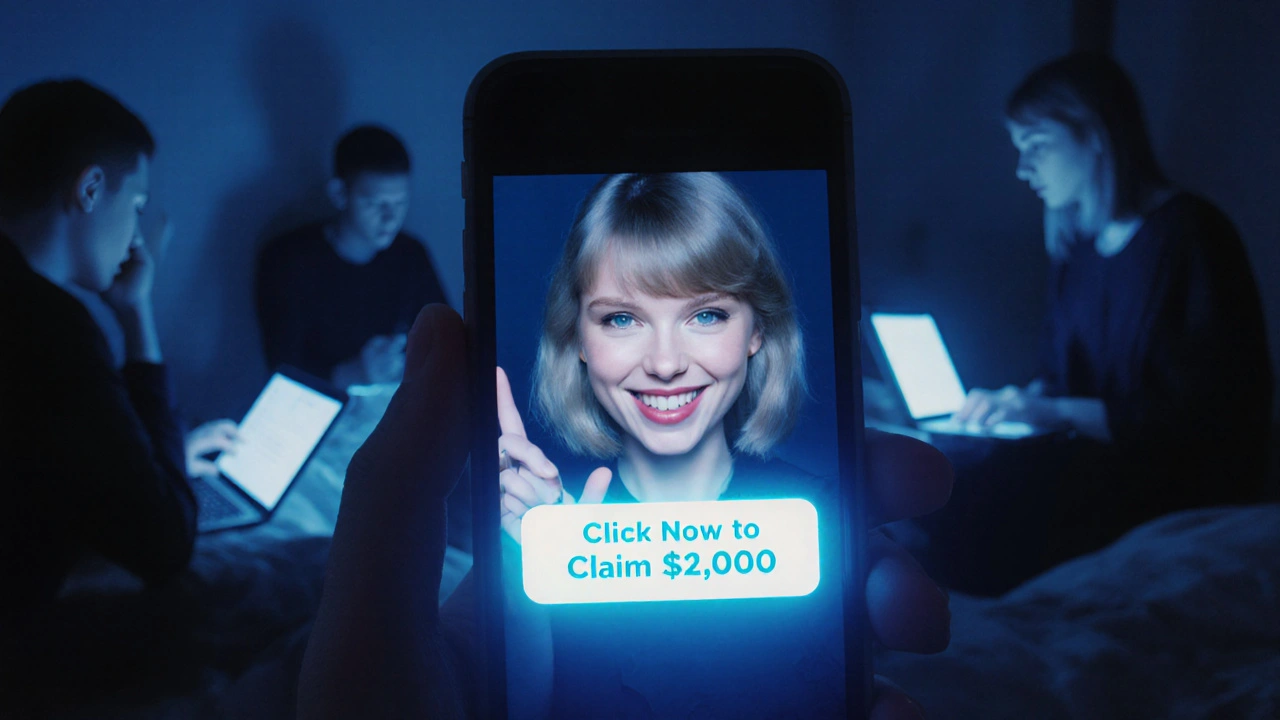Fake Celebrity Ads: How Scams Trick You and How to Avoid Them
When you see a fake celebrity ad, a misleading promotion that falsely claims a famous person endorses a product or service. Also known as celebrity endorsement scams, it’s designed to make you trust something just because a name you recognize is attached. These aren’t just annoying—they’re dangerous. People lose thousands to fake weight loss pills, crypto schemes, and fake luxury deals because they think, ‘If Beyoncé or Elon Musk is behind it, it must be real.’ But here’s the truth: celebrities don’t randomly promote obscure websites or unregistered apps. If it feels too good to be true, and a star’s face is slapped on it, it probably is.
These scams rely on online advertising fraud, the manipulation of digital ad systems to show false or deceptive content to users. Scammers use AI-generated images, deepfake videos, and stolen photos to make it look like a celebrity is talking about a product they’ve never heard of. You might see a video of Tom Hanks saying, ‘I use this Bitcoin app—it’s changed my life,’ but that clip was stitched together from old interviews. The real person has no idea. And if you click? You’re not just wasting time—you’re handing over your credit card, your email, even your Social Security number to criminals who vanish the moment you pay.
It’s not just about money. fake influencer marketing, the use of fabricated social media personas to push products under false pretenses is growing fast. You’ll see Instagram posts with 500K likes from ‘celebrities’ who don’t exist. Their accounts are bots, their followers are fake, and the product? Often malware or a phishing site. Even worse, some scams target seniors or people new to the internet, using trusted faces like Oprah or Dr. Phil to sell fake medical devices or miracle cures. These aren’t jokes—they’re crimes that ruin lives.
You don’t need to be a tech expert to protect yourself. Check the URL. If it’s not the official site of the brand, walk away. Look for spelling errors, poor design, or pressure tactics like ‘Limited time offer!’ Real brands don’t beg you to buy in 12 minutes. Search the celebrity’s name + ‘scam’ or ‘fake ad’—you’ll often find warnings from their official team. And if you see a post that looks too perfect? Reverse image search it. Chances are, the photo was pulled from a red carpet event five years ago.
There’s no magic shield against these scams, but awareness is your best defense. Every year, millions fall for fake celebrity ads because they’re clever, fast, and emotional. They don’t ask you to think—they ask you to feel. And that’s exactly why they work. But now you know how they’re built. You know what to look for. And you’re not alone—thousands of people are sharing their stories, warning others, and pushing platforms to do better.
Below, you’ll find real examples, breakdowns of the most common tricks, and step-by-step guides on how to spot these ads before they trick you—or someone you care about.
- November 18 2025
- 14 Comments
- Lucas Harrington
Celebrity Endorsement Scams: How Deepfakes Are Trickling Your Money
Deepfake celebrity scams are tricking millions into giving away money by faking endorsements from stars like Taylor Swift and Shah Rukh Khan. Learn how they work, how to spot them, and what to do if you’re targeted.
- Disney World Vacations (35)
- Kissimmee Florida (29)
- Florida travel (26)
- Crypto & Blockchain (10)
- Information & Privacy (5)
- Blockchain & Cryptocurrency (4)
- Disney Parks & Tips (3)
- Disney History (3)
- Travel (2)
- Travel Tips (2)
Categories
- January 2026 (6)
- December 2025 (29)
- November 2025 (41)
- October 2025 (16)
- September 2025 (6)
- August 2025 (3)
- July 2025 (3)
- June 2025 (2)
- May 2025 (2)
- April 2025 (1)
- March 2025 (6)
- February 2025 (11)
Archives
- Florida beaches
- Disney World
- Florida
- Florida travel
- Kissimmee demographics
- Kissimmee
- Kissimmee Florida
- Orlando tourism
- Disney park hours
- Disney World tips
- Disney vacations
- Disney 100
- theme park tips
- Disney celebration
- tourism
- Disney secrets
- Disney history
- travel
- Disney World crowd calendar
- Disney World cost

